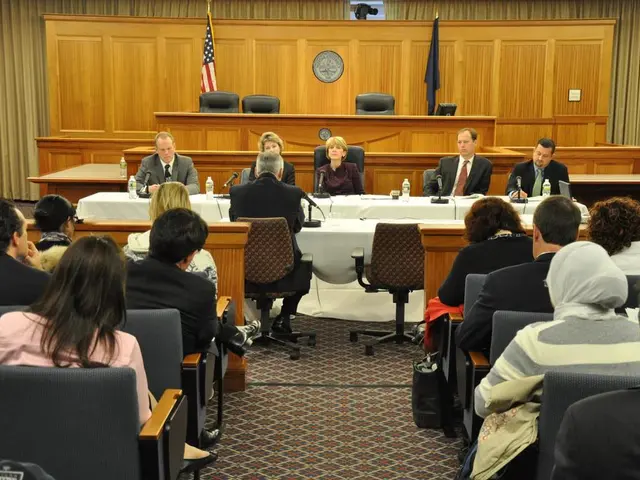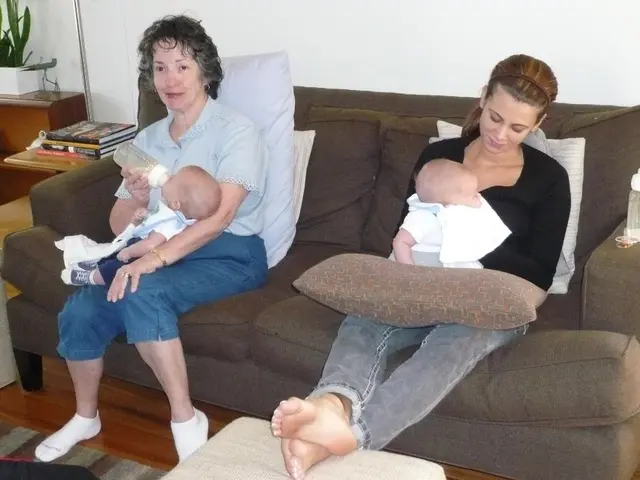Child Slap by François Bayrou: Reflection on the Bétharram Incident - After 23 Years, Such Actions Would Be Unacceptable
Flashback to 2002: The Slap Heard 'Round France
Twenty-three years ago, during a political campaign visit, François Bayrou, a prominent French politician, was caught on camera giving a child a smack in the Meinau neighborhood of Strasbourg. This seemingly casual slap set off a chain of events that would make headlines for weeks.
Now,twenty-three years later, this incident remains a hot topic in the ongoing dialogue about education, discipline, and parental responsibility. In May 2025, Bayrou was summoned to testify before the parliamentary inquiry committee regarding the Bétharram affair. However, the focus was no longer on his supposed mildness towards the educational institution in the Pyrenees-Atlantiques, but on his infamous slap in 2002.
It's been decades, yet no apologies, no acts of contrition. Bayrou's stance remains steadfast: "For me, it's not violence, but a disciplinary action." "And if someone here thinks they've never given a tap to a child, I believe that many, if they're honest, can admit they've done it," he told the deputies who came to question him.
A Century-Old Mindset Persists
Joëlle Sicamois, director of the Childhood Foundation, was taken aback by Bayrou's justifications. "It's unacceptable and worrying for a Prime Minister to still trivialize a slap in 2025," she said. "His words illustrate that the concept of 'disciplining a child' still lingers in people's minds, despite the law that exists."
Since July 10, 2019, a law has been in place that bans educational violence in France. "Parental authority must be exercised without physical or psychological violence," the text states. Gilles Lazimi, a general practitioner and president of the Stop VEO (Ordinary Educational Violence) association, expands on the law, clarifying that it includes "all coercive practices used by parents to hurt, to frighten, to make a child suffer, to threaten under the pretext of educating them." This encompasses shouts, hurtful words, pulling hair, slapping, and more.
Still a Long Way to Go
Six years after the law was passed, a barometer by the Childhood Foundation revealed that nearly one in four parents had resorted to spanking, and one in six had resorted to slapping their children in the previous week. "That's still one in four families," insists Sicamois. "And that's probably an underestimate, as some may not admit it. That's not nothing!"
The shocking discovery that so many parents still support the use of physical discipline is concerning. According to a study by the Childhood Foundation, in 2022, 51% of respondents answered "yes" to the question "Do you think the legislative ban on educational violence constitutes an intrusion of the State into private affairs?" Two years later, it was 60%. "Today, some parents still believe they have sole responsibility for their children's education," lamented Sicamois. "It seems as if the law doesn't exist to them."
A T föur-Year Leap in Thinking
Ironically, the same slap that could have soured Bayrou's political career instead garnered him public support. "We were scared that the slap would have disastrous consequences," recalled Patrick Mignola, a member of his campaign team at the time. "But the effect was the opposite: the public saw guts and authority. At no point did I think of it as mistreatment."
The slap was immediately picked up by news outlets, and Bayrou became the subject of public discussion. Support poured in, with approximately 500 emails of congratulations arriving at his office per day. Eventually, this incident even caused Bayrou to rise in the polls just weeks before the presidential election.
The Times They Are A-Changin'
Proponents of the ban on educational violence argue that societal views are evolving, and we must continue to move away from antiquated ideas such as the need to physically discipline children. "The same slap that Bayrou gave today would be a huge scandal," believes Gilles Lazimi, president of the Stop VEO association. "It wouldn't fly today, just as it's no longer acceptable to condone domestic violence."
Despite progress, much work remains. Only recently, on January 1, advice on raising children without violence was added to the health record book, demonstrating the need to continue to educate parents on positive, non-violent discipline methods. Joëlle Sicamois aims to drive change by expanding the law to cover all places where children live, including schools, sports, and extracurricular activities. In the latest survey by the Children's Foundation, nearly a third of parents surveyed (31%) answered "no" to the question, "Do you know that, since 2019, a law has banned ordinary educational violence?"
Could Bayrou's slap serve as a wake-up call for society to reevaluate its approach to discipline and foster a culture of safety and respect for children? Only time will tell. For now, the dialogue about educational violence in France continues.
- The discussion about education, discipline, and parental responsibility in France, ignited by the incident involving François Bayrou in 2002, has evolved to include policy and legislation concerning the ban on educational violence.
- Despite the enactment of a law banning educational violence in France in 2019, a barometer by the Childhood Foundation revealed in 2025 that one in four parents still resorted to spanking, and one in six had resorted to slapping their children in the previous week.
- Gilles Lazimi, president of the Stop VEO association, believes that the societal views on physical discipline are changing, stating that the same slap that Bayrou gave in 2002 would be unacceptable today, similar to how domestic violence is viewed.






